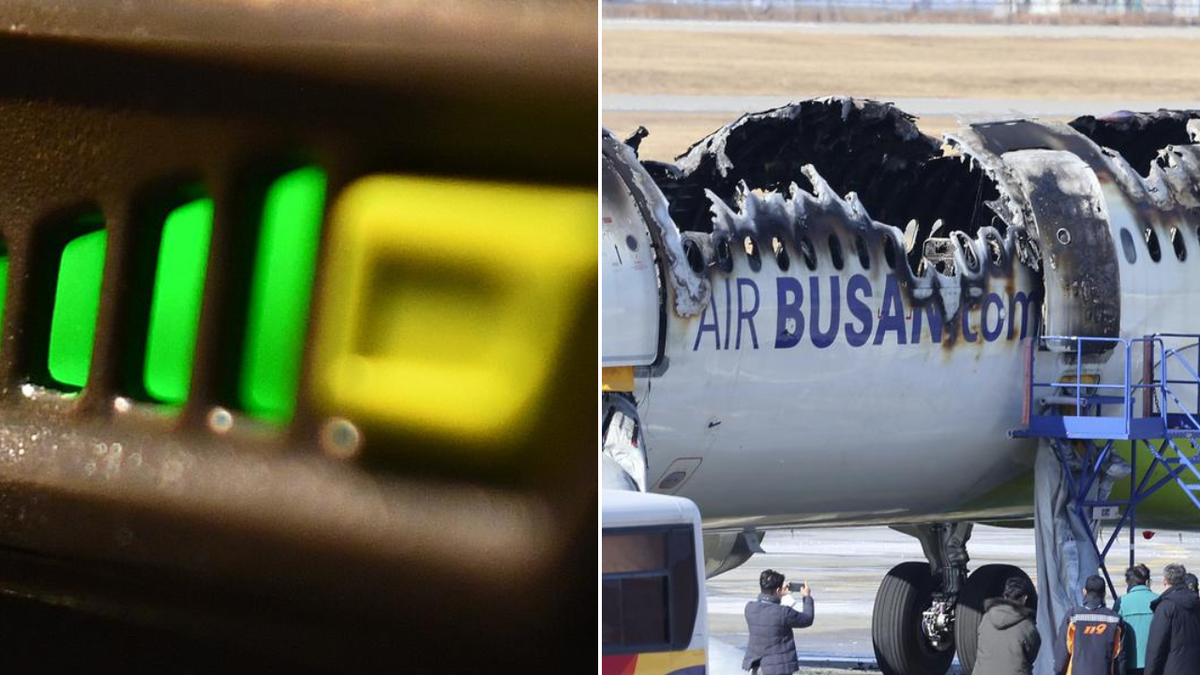Power bank warning: Anker and Baseus among chargers recently recalled as Singapore Airlines and Qantas issue bans
Experts warn they are “playing catch-up” with new lithium batteries flooding the market as Australia’s consumer watchdog issues a safety alert to any Australian buying the popular wireless chargers.
A lack of regulation and soaring demand has contributed to a growing number of wireless power banks getting recalled, experts added.
The competition watchdog warns 34,000 defective portable chargers are still being used by customers, after a surging number of recalls of the product.
Know the news with the 7NEWS app: Download today
The Australian Competition and Consumer Commission has issued 17 different recalls of power banks since 2020, with more than half being made since 2024.
Popular brands including Anker, Baseus and SnapWireless power banks were the most recent products to be recalled.
Power banks are portable battery chargers designed to power devices on-the-go.
The wide range and growing popularity of portable chargers contributes to rising product recalls. Credit: AAP
They use rechargeable lithium-ion or lithium-polymer batteries that are highly flammable, can explode or vent toxic gas, the commission says.
Product recalls for some of the bigger brands is a surprise for Chris Barnes, a senior project officer for consumer advocacy group Choice.
“You’re always playing catch-up with new technologies, always having to implement specific new mandatory standards or a product ban to cover these sorts of situations,” he told AAP.
“Consumers should be able to trust that anything they buy through a reputable retailer is OK.”
The uptick in recalls is being caused by more products on the market, a lack of regulation and differing materials inside the models, University of Melbourne head of chemical biomedical engineering Amanda Ellis says.
While most power banks are safe to use, a person’s safety rests on how they use them, she said.
“We don’t have Australian standards for batteries at the moment so that’s one of the problems,” Ellis told AAP.
“We don’t really know what is in these batteries because it’s all (intellectual property) protected, so it’s challenging, and more and more people are using them than five years ago.”
The extreme end of people carrying dangerous power banks was felt by South Korea’s Air Busan in January when a fire started in one of its planes’ overhead lockers.
The blaze, believed to have started from a power bank, destroyed the plane with all 179 passengers on-board managing to evacuate safely.
Air Busan will stop power banks being put in overhead lockers on planes, as a fire safety measure. (AP PHOTO) Credit: AAP
Some of the ways to lower the risk are following manufacturer instructions, not charging near flammable furniture and never using damaged or leaking power banks, the commission said.
“Some consumers have suffered serious burn injuries, and some have had their property damaged because of power banks overheating and catching fire,” the watchdog’s deputy chair Catriona Lowe said.
Suppliers offer a full refund or free replacement under the recalls, Ms Lowe said.
Power bank restrictions for airlines including Qantas, Virgin and Singapore Airlines
The horrific incident involving Air Busan has prompted a number of airlines to completely ban power banks in its carry-on luggage to ensure passengers’ safety.
Back in April, Singapore Airlines went a step further, banning passengers from using their seat’s USB charging port to juice up their power banks.
“Effective 1st April 2025, Singapore Airlines customers will not be allowed to charge portable power banks via the onboard USB ports, or use power banks to charge their personal devices, throughout the duration of the flight,” the airline said.
“This means power banks must be carried in cabin baggage on all SIA flights and are not permitted in checked baggage. Customers may bring power banks with a capacity of up to 100Wh without special approval, while those between 100Wh and 160Wh require airline approval.
“We seek customers’ understanding that safety will always be our top priority.”
Qantas has also cracked down on power banks.
“Baggage fitted with non-removable lithium batteries or power banks are forbidden,” the national carrier said.
“If in checked baggage the lithium battery or lithium power bank must be removed from the bag.
“The removed lithium battery or power bank must be in carry-on baggage only.
“Non-lithium batteries/power banks can remain fitted in the bag and carried as carry-on or checked baggage.”
Virgin Australia has similar rules.
“Spare/loose batteries (including power banks/packs must be in carry-on baggage only and must be protected against short circuit by, placing in its original retail packaging, placing each battery in a separate plastic bag or protective pouch or insulating terminals by taping over exposed terminals,” the airline said.
— With AAP


